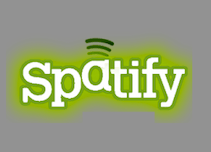 Poor old Spotify. Less than a week after Billboard magazine reported that the music-on-demand service had “rebooted” its negotiations with US labels, rival service Rdio has just opened its doors in both the US and Canada, proudly boasting deals with many of those same labels.
Poor old Spotify. Less than a week after Billboard magazine reported that the music-on-demand service had “rebooted” its negotiations with US labels, rival service Rdio has just opened its doors in both the US and Canada, proudly boasting deals with many of those same labels.
So what gives? What does Rdio – another European startup boasting unlimited music, anywhere – have that Spotify doesn’t?
Two words: faux humility.
But I’ll get to that in a second. First there is a convention – so widely adhered to that it might as well be a law – that if you’re going to write anything critical about Spotity, you have to first acknowledge the amazing slickness of its product.
So here we go: Spotify is amazingly slick as a product. Really it is. You want to listen to a song – almost any song ever recorded – just type its name into Spotify and it plays. For free. If you want to listen to unlimited songs without obtrusive ads, or if you want to download the songs for offline listening, then you pay ten Euro a month and it’s all yours. It’s a thing of beauty.
But here’s what would also be a thing of beauty: a magic ATM that, using a slick point and click interface, handed out free dollar bills, printed with tiny ads. A magic ATM that, for a small monthly fee, would allow you to upgrade from withdrawing ad-supported singles to withdrawing unadulterated fives.
Like that magic ATM, Spotify’s app is writing checks its business model can’t cash. In Europe the company claims that it’s racing towards profitability: subscription numbers are climbing – with founder Daniel Ek (pronounced ‘Eek’) telling a South by Southwest audience in March that they have 320,000 paying customers. And yet according to persistent rumours, the company is in the midst of frantic renegotiations with European labels due to the founders’ over-confidence when they first agreed licencing terms. In short: Spotify was so convinced that it would be successful that it agreed to a deal where it would pay a significantly reduced royalty in its first couple of years of operation, with payments stepping up after that launch period to reflect the huge cash cow that the product would become. A deadline that expires right about now, with the company still barely a cash calf. Uh oh.
And yet to read the European business press – or what passes for it – you’d think that all is well at Spotify. So desperate is Europe to have another dot com success story – to stick it to the Valley – they they unquestioningly print any bullshit that Spotify’s spin machine churns out. When Billboard ran their story about the company’s stalled negotiations with US labels, Ek simply picked up the phone to a journalist from the Telegraph in London and reiterated that “Spotify will launch in US by end of 2010”. That claim became the story’s headline across much of the UK and European press, despite the company’s numerous missed deadlines and their history of – yes, I’ll say it – deliberately misleading the media. It’s clear that Ek passionately believes that Spotify is the future of music online and that sooner or later the world will realise that fact. If his spokespeople have to bend the truth slightly in the meantime to buy the company a few extra months then – meh – it’s for the greater good. They’ll see. THEY’LL ALL SEE.
Unfortunately while Ek’s balls-to-the-wall style of doing business might play big on the old continent, it has precisely the opposite effect in the US. Put bluntly, America wants Spotify to fail. Or rather, unlike Europe, America – represented by music labels, journalists and anyone else with a vested interest in the space – doesn’t have any reason to want Spotify to succeed. And they certainly have no time for an arrogant European demanding that they have to change how they do business just because he says so.
“Sure,” say the labels, “if Spotify wants to talk about launching a fully subscription based version of their cute little European service, perhaps with a very short trial period, then we’ll take the meeting. We’ll even promise not to laugh at their quaint accents. But if they won’t play by our rules, we’re quite happy to continue working with Rhapsody, Mog, Napster — and now Rdio.”
Oh, yes, Rdio. Founded by Janus Friis and Niklas Zennstrom – formerly of Skype – Rdio offers much of the same functionality as Spotify — but with a waaaay crappier interface. Really it’s bad: so bad that it’s actually a challenge to figure out how to make it play music. Even when you get the thing working, the service is only free for a very short amount of time – three days! – before users are asked to stump up $10 for a subscription. In no universe is three days enough time to get users hooked on a new music service, particularly when it takes two-and-a-half of those days to figure out how the hell it works.
And yet, despite sucking harder than Divine Brown trying to pick up a golf ball with a hosepipe, Rdio’s launch has been welcomed to America with open arms. How did Friis and Zennstrom manage where Spotify has failed?
By playing the colonials like a violin.
From the start, Rdio has pandered to the US music industry’s every demand: launching as a subscription-only service that barely allows a note of free music out before users are shaken down for money. It’s pandered to reporters too: cleverly positioning itself as the approachable antidote to arrogant old Spotify by talking to every reporter who called, not lying to them, and even dishing out free invitations to sites like – uh – TechCrunch to share with their readers. Of course America lapped it up. Screw you, Ek, these Europeans are OK. They know their place.
As a European living in the US, I understand Rdio’s strategy completely: after all, it’s exactly the same one that any sensible Brit, Swede, Frenchman or Spaniard should take if they want to get on the good side of the Yanks. Clearly Daniel Ek didn’t get the memo so, in the interests of Euro-American relations (and in the interests of being able to keep listening to Spotify over here), I’m willing to do what I can to help him. Because I’m a nice person. Really I am.
(If you’re American, please stop reading now; perhaps go and look at these pictures of Scottish castles or Norwegian fjords.)
Daniel,
You and I can agree on one thing: Europe is better than America. We speak more languages. We made stronger, tastier cheese. Our money is more colourful. We embrace the letter “u” in our words.
Like all good Europeans, we are at heart socialists, not capitalists: we think music – like healthcare – should be free. And we also have a healthy contempt for journalists who would question our ability to pay our bills.
Most importantly, though, like all good Europeans, we also know that Americans are – to a man – suckers: albeit with far more than one born every minute. What’s theirs – including their money – is rightfully ours, Daniel. After all without us they’d all be speaking – well – American.
And yet, trying to conquer America with arrogance is like trying to conquer a sheep with wool. Rather, the secret to victory is to to play into their ego, not to fight against it. I realised this when I moved here: by playing the unemployable drunken Brit card I was able to get a job writing anti-American diatribes like this for TechCrunch (“oh, the Brit sense of humo(u)r”) and to start charming their women with my accent. Rdio understands the need for faux-humility too: they’ve used it to beat you to launch here, despite a far inferior product.
Life is good on this side of the Atlantic, Daniel, and Spotify could be living it too. All you have to do is start telling America what it needs to hear. Swallow your ego and do whatever deals you have to do to get Spotify US launched, even if it’s as a full subscription product. Yes, it will be an embarrassing climb down but, while you’re stubbonly sticking to your guns, Rdio is romping away with your market share. If VHS vs Betamax has taught us anything, it’s that the clear superiority of your product doesn’t matter a damn if Rdio has all of the users by the time you finally launch in 2095.
Once you’ve launched here, everything will change. Once every man, woman and child in America is hooked on Spotify (which they will be, because it’s the best music service in the world, right Daniel?) then you can start to show your true colours. Slowly extend the trial period – first to a week, then a month, then get a bit lax with paying your licencing fees; maybe a contract renegotiation or two to tip the financial balance further in your favour. By that point the labels will need you, Daniel, and you can do whatever the hell you like. Oh, yes, Daniel, they’ll see. THEY’LL ALL SEE.
Alternatively keep playing the same old broken record, telling the world that you’re launching your fremium service in the US before the end of 2010. And in the meantime, I’ll keep enjoying your free magical musical ATM until the cash runs out.
